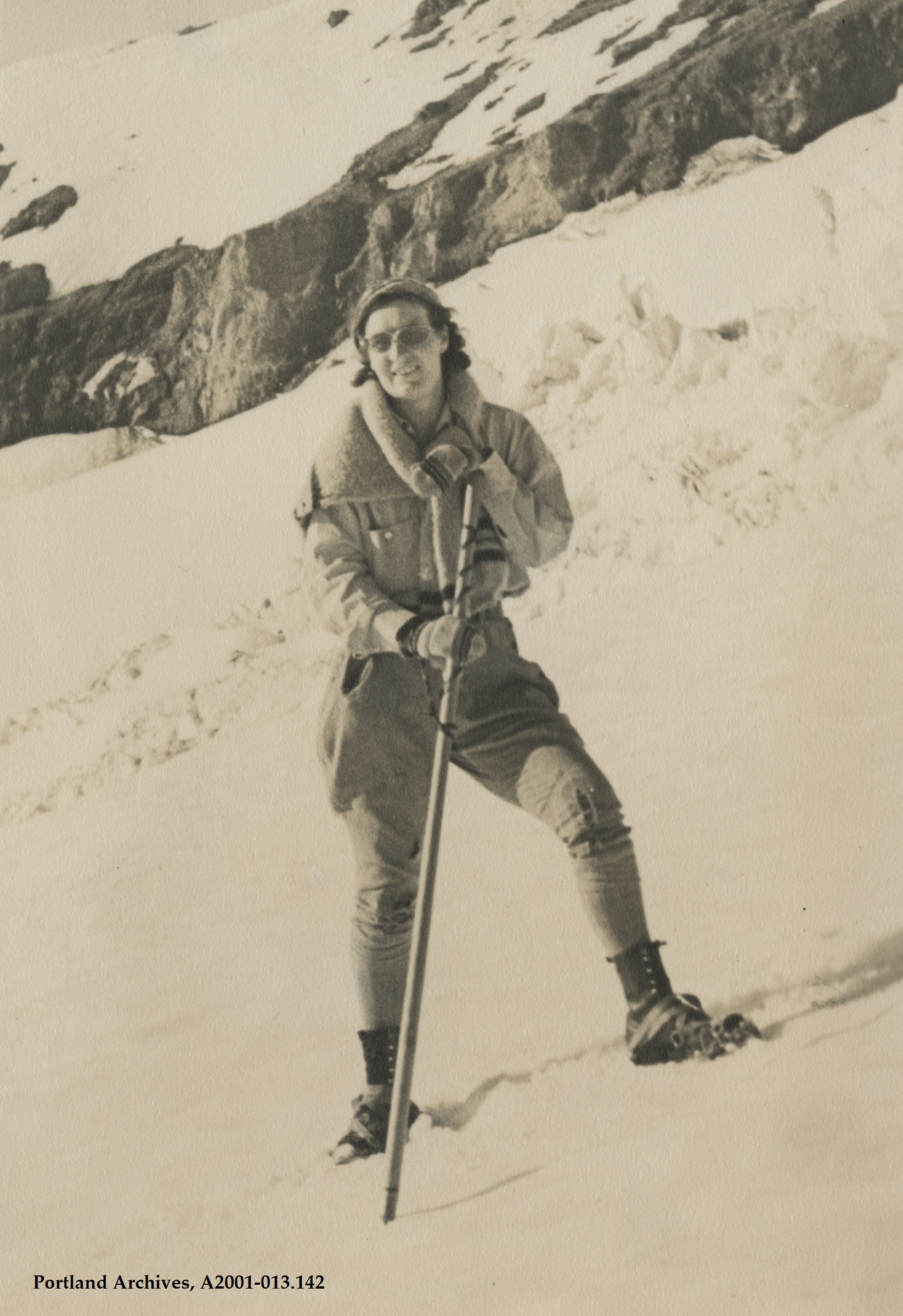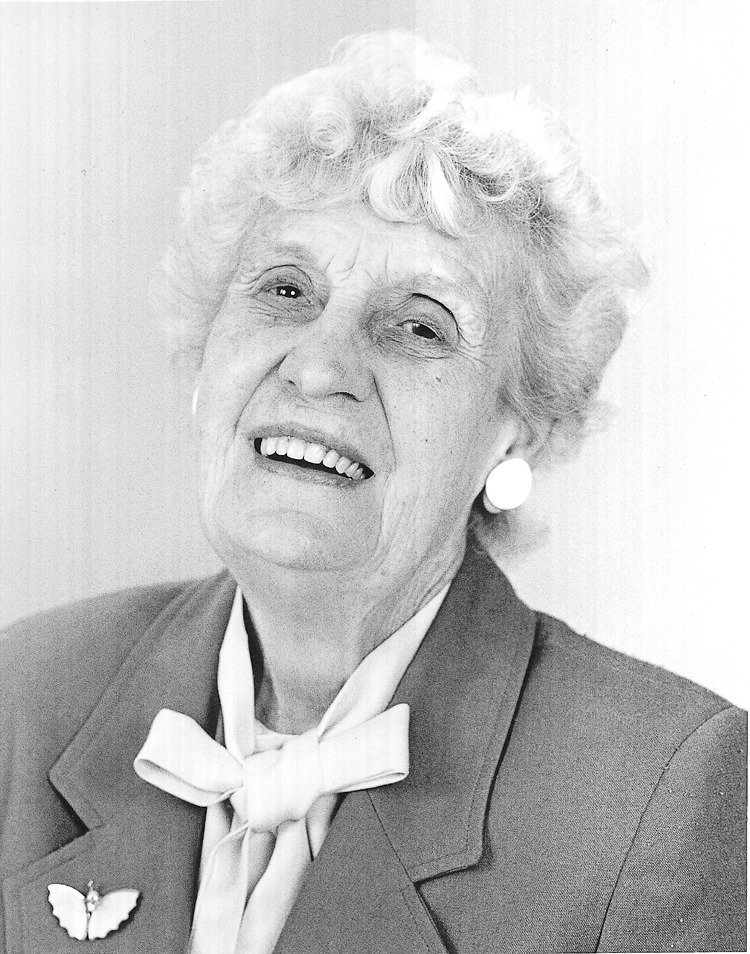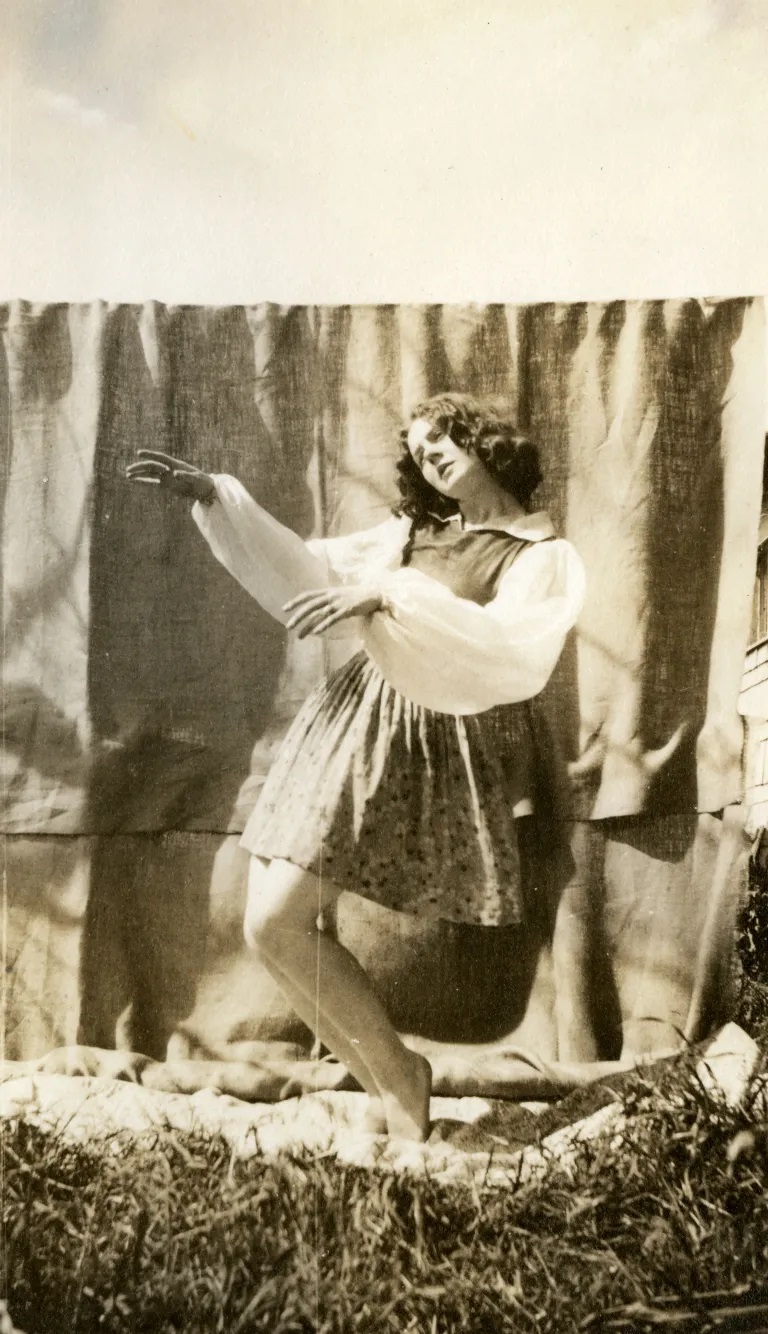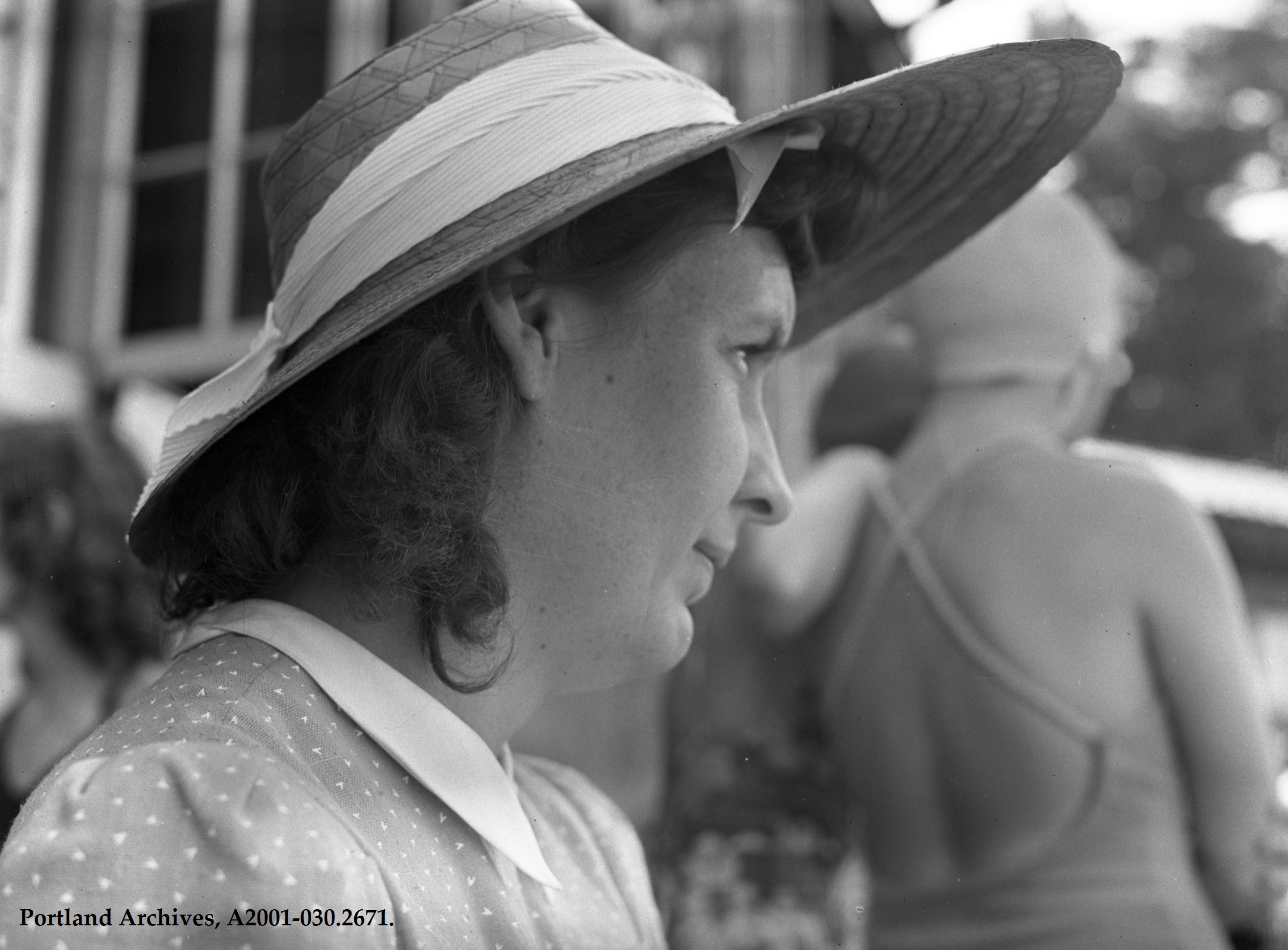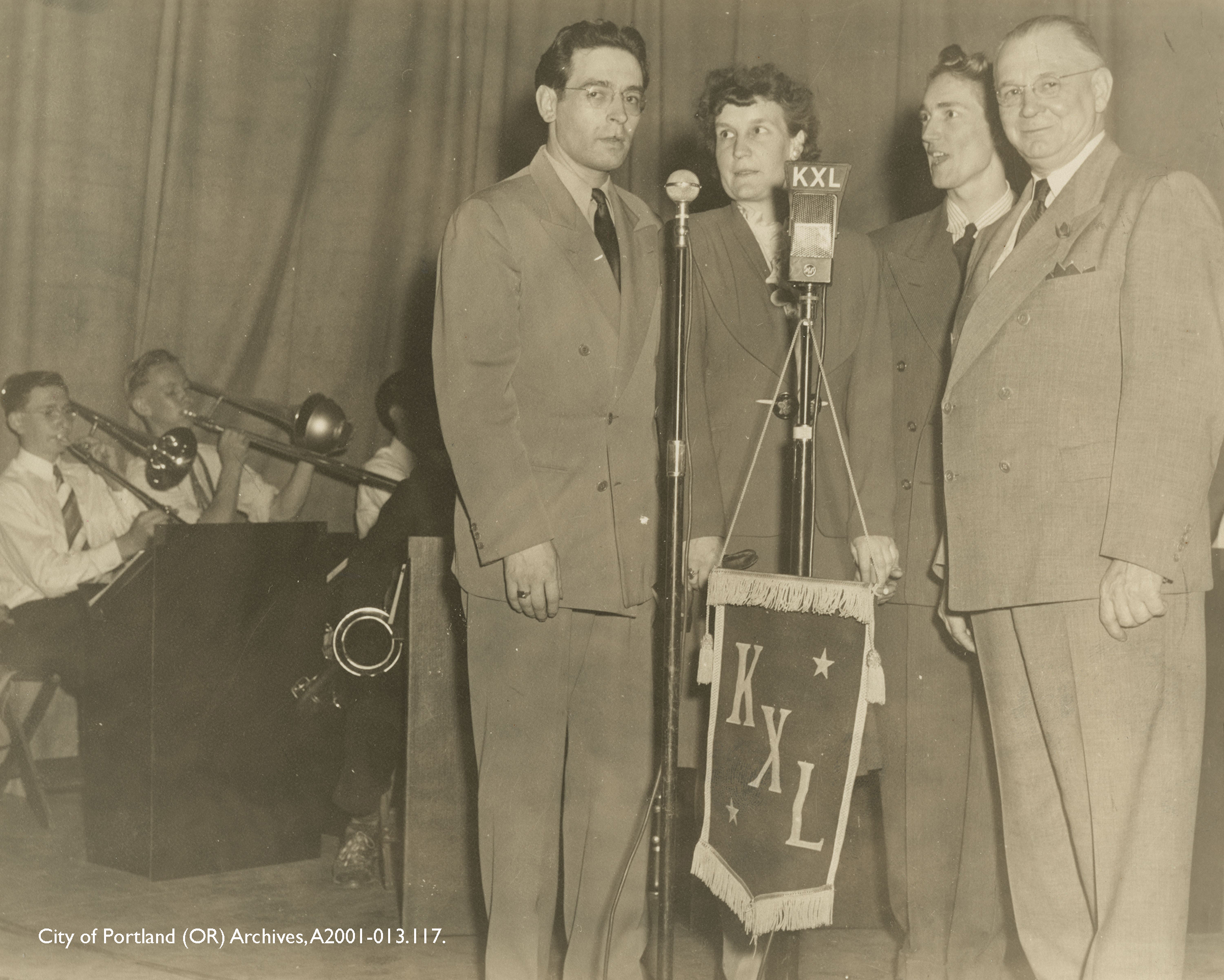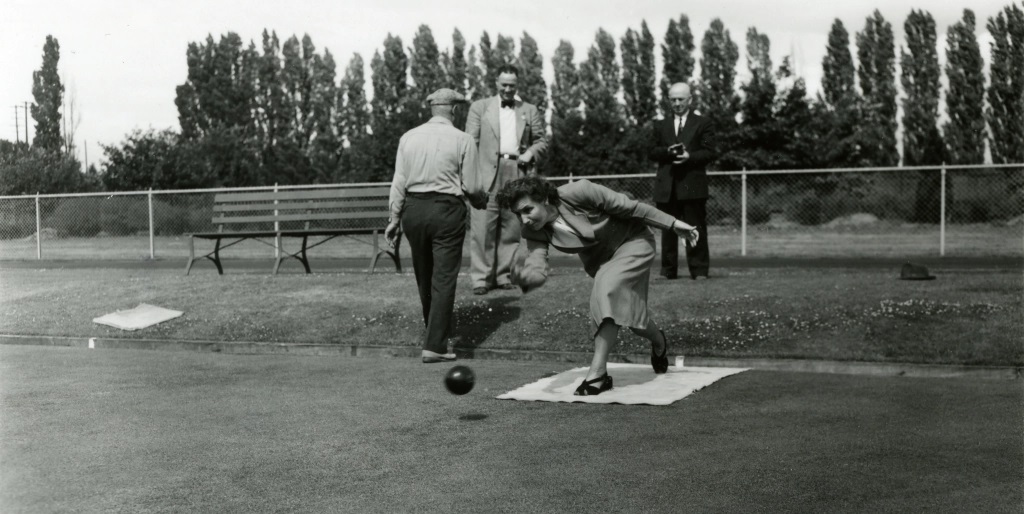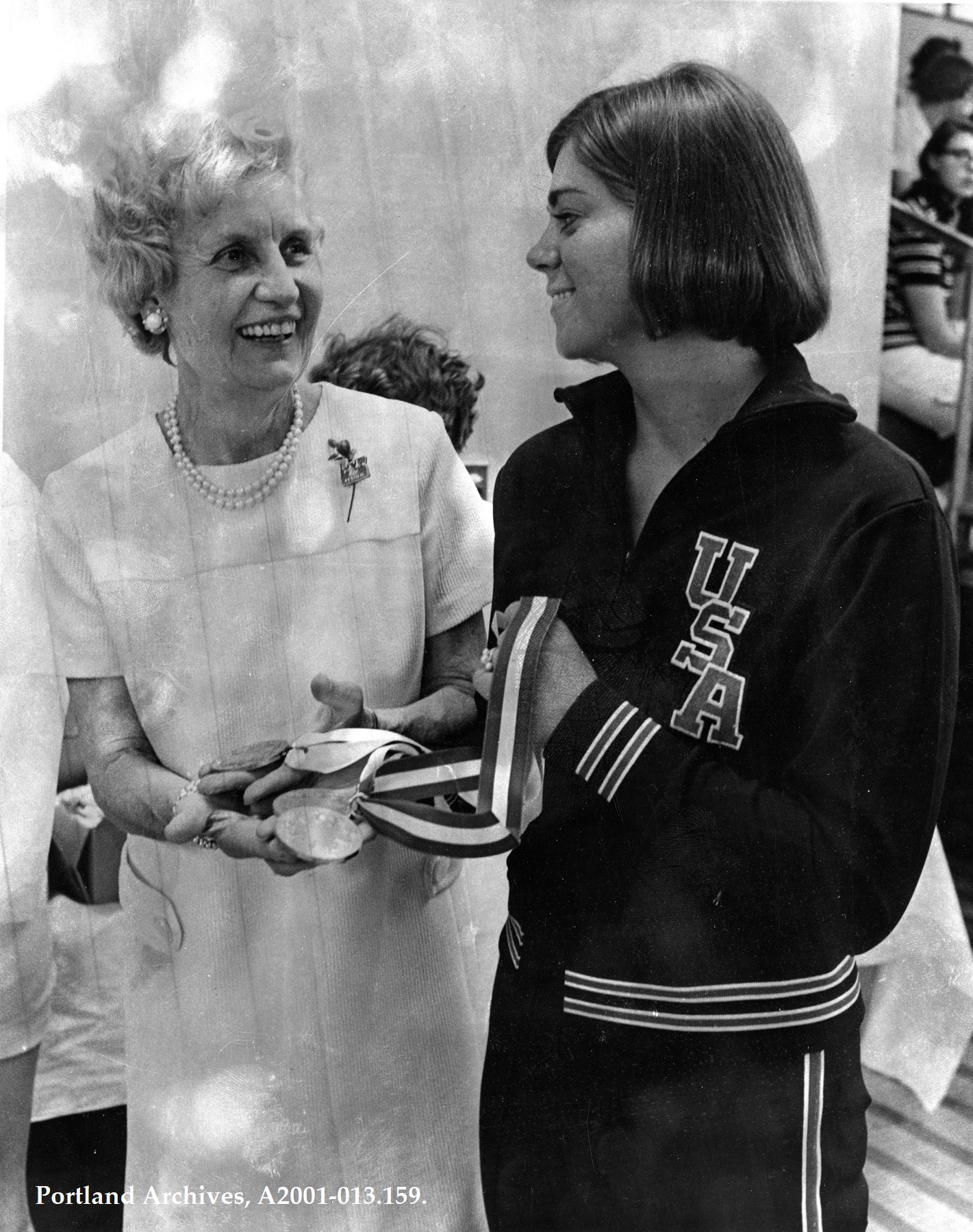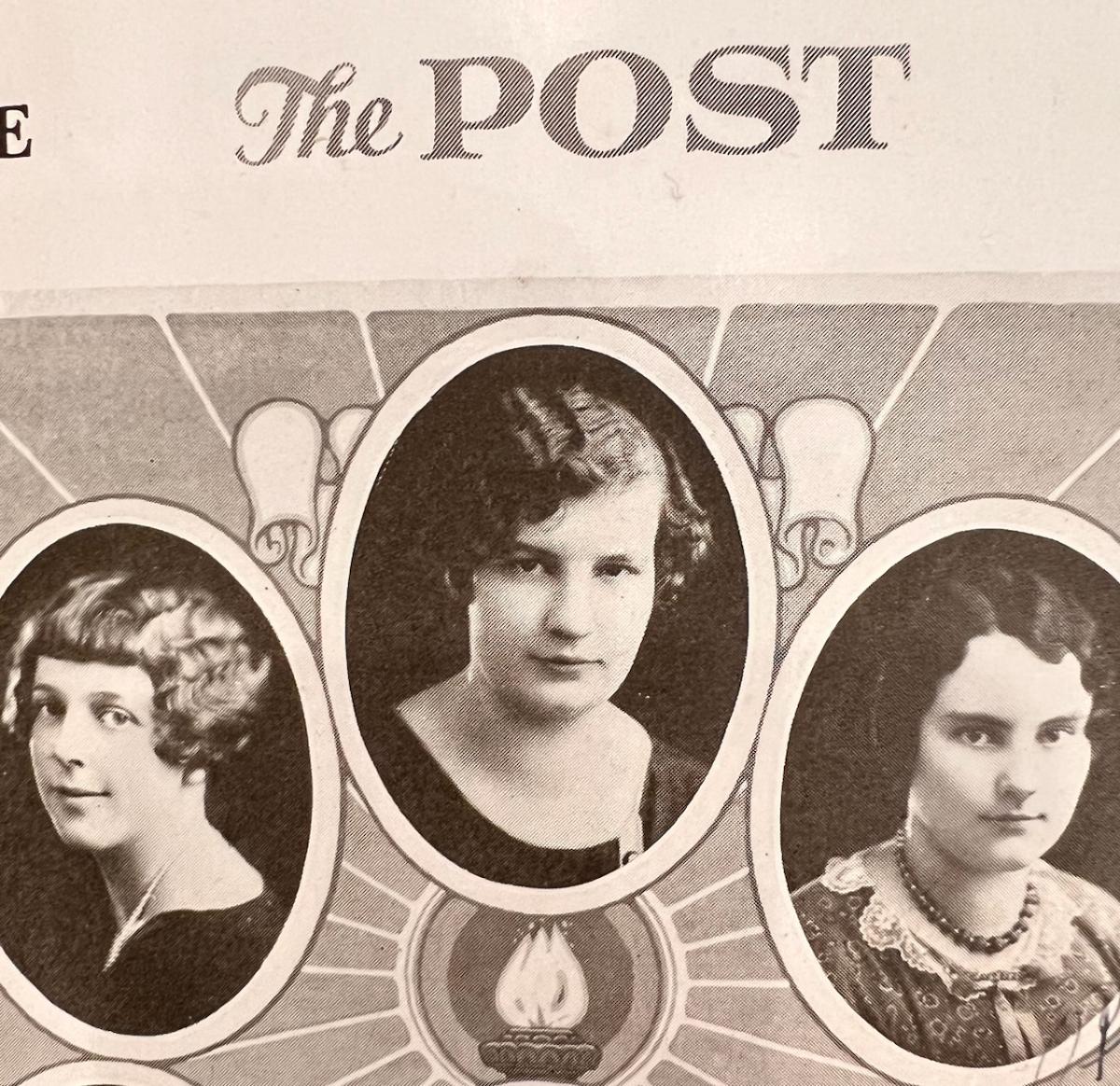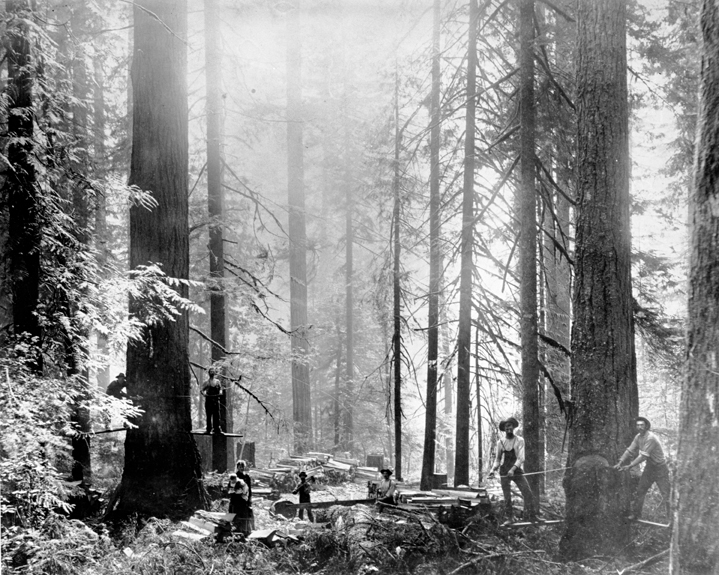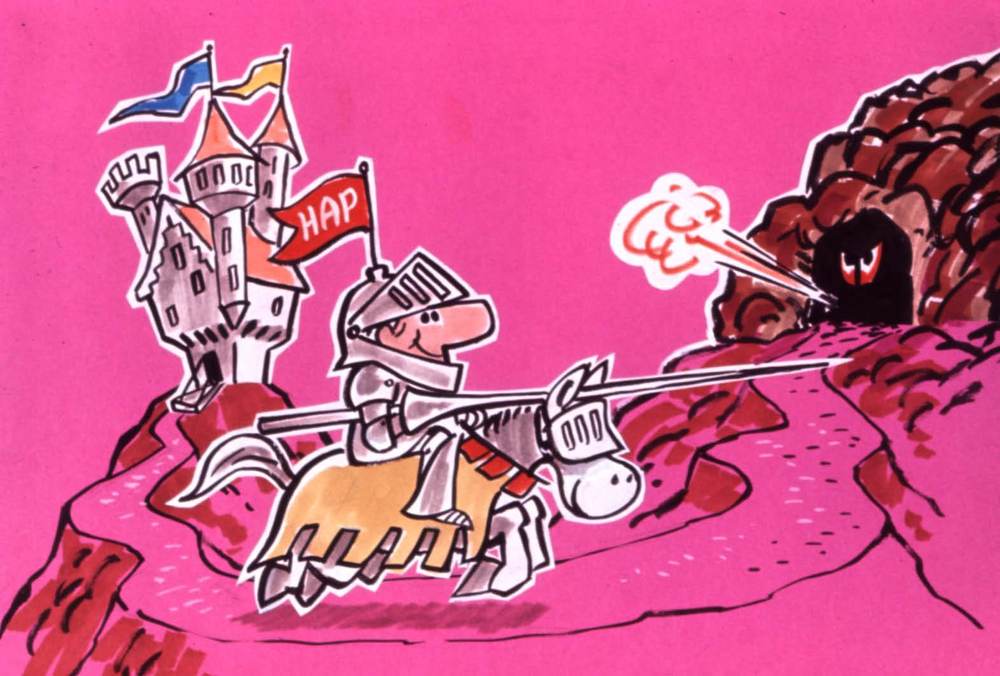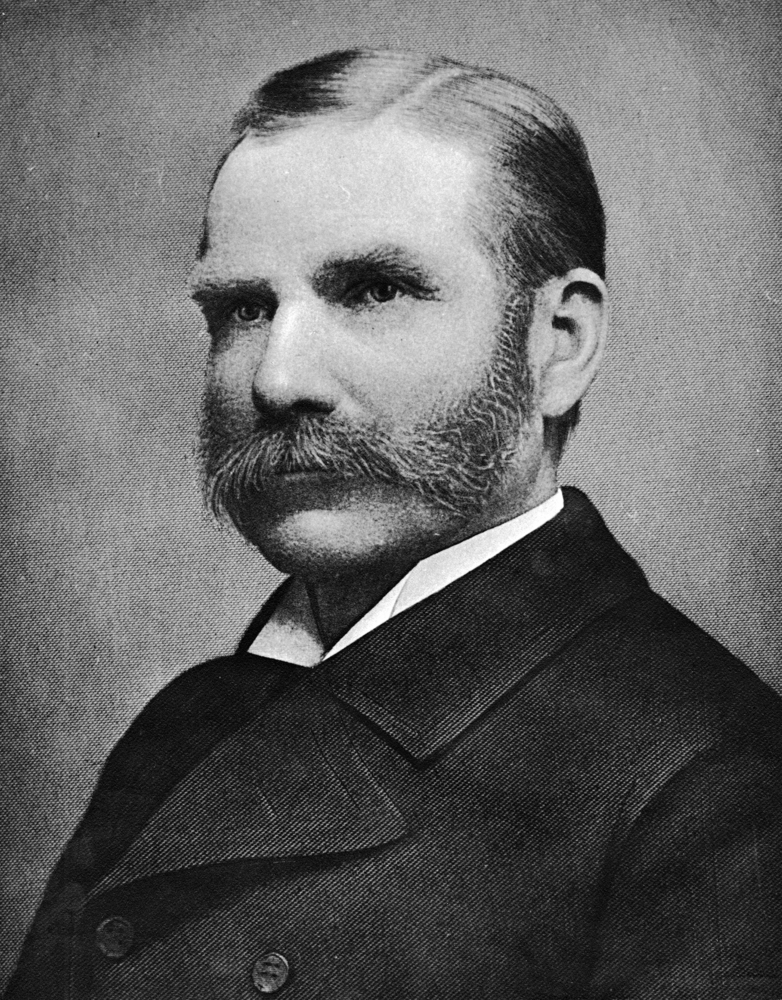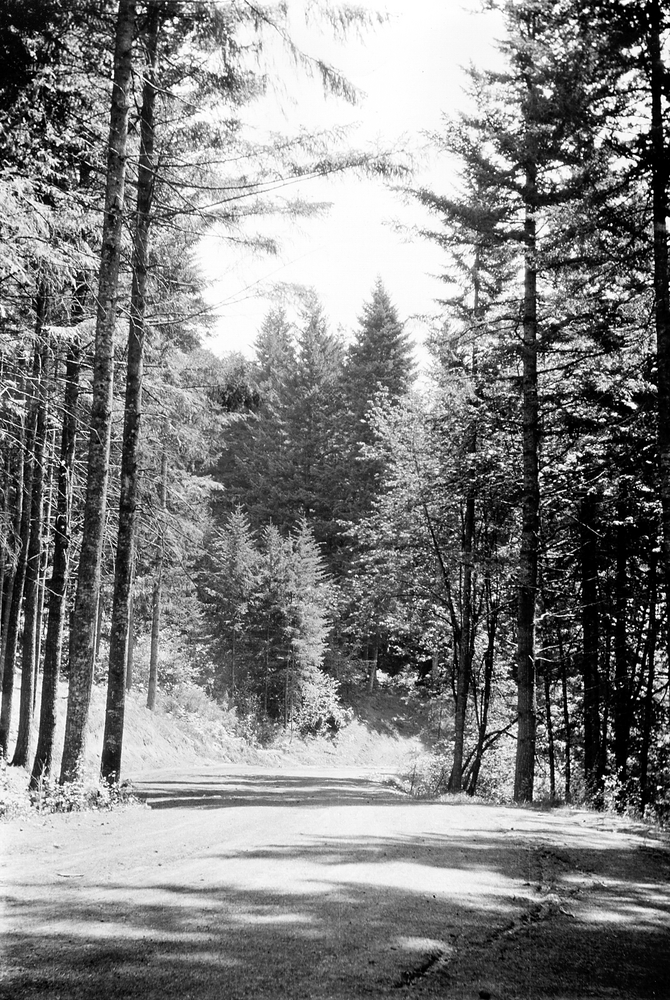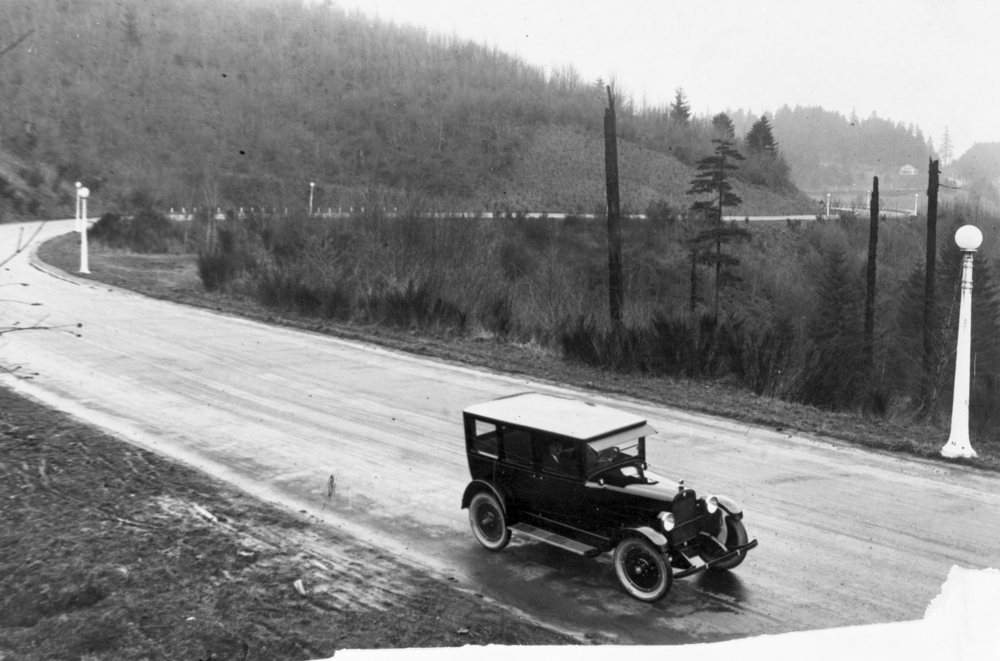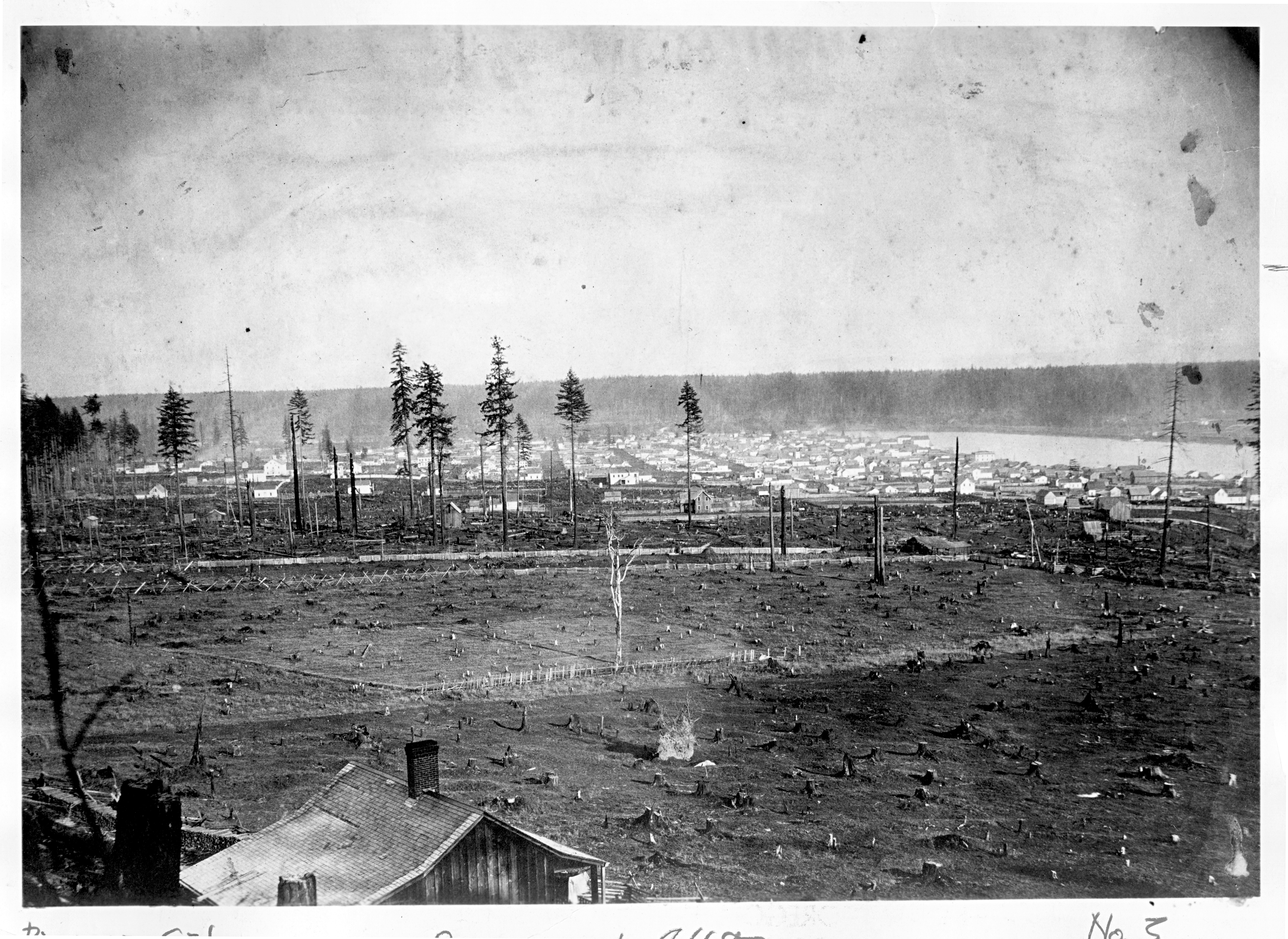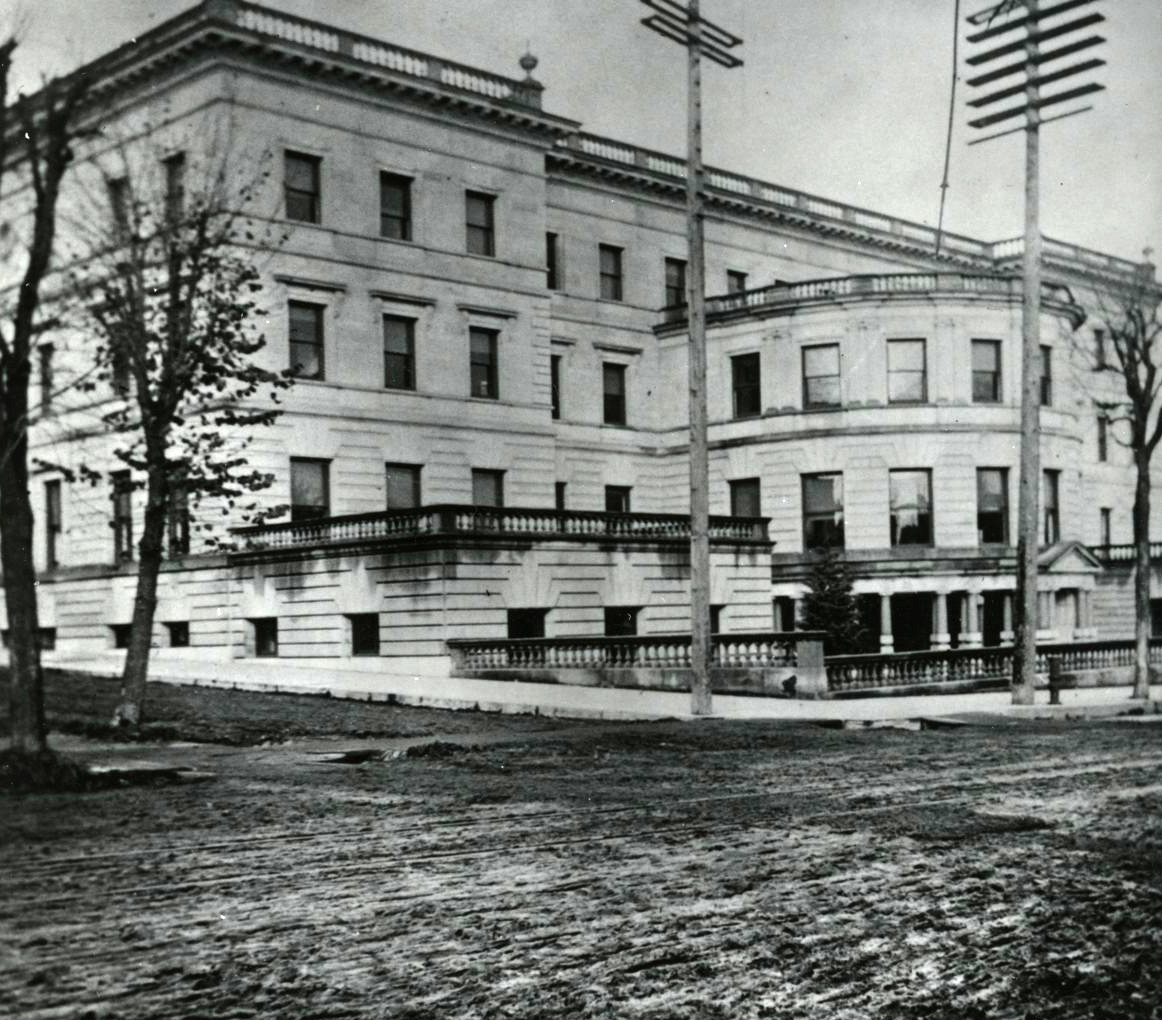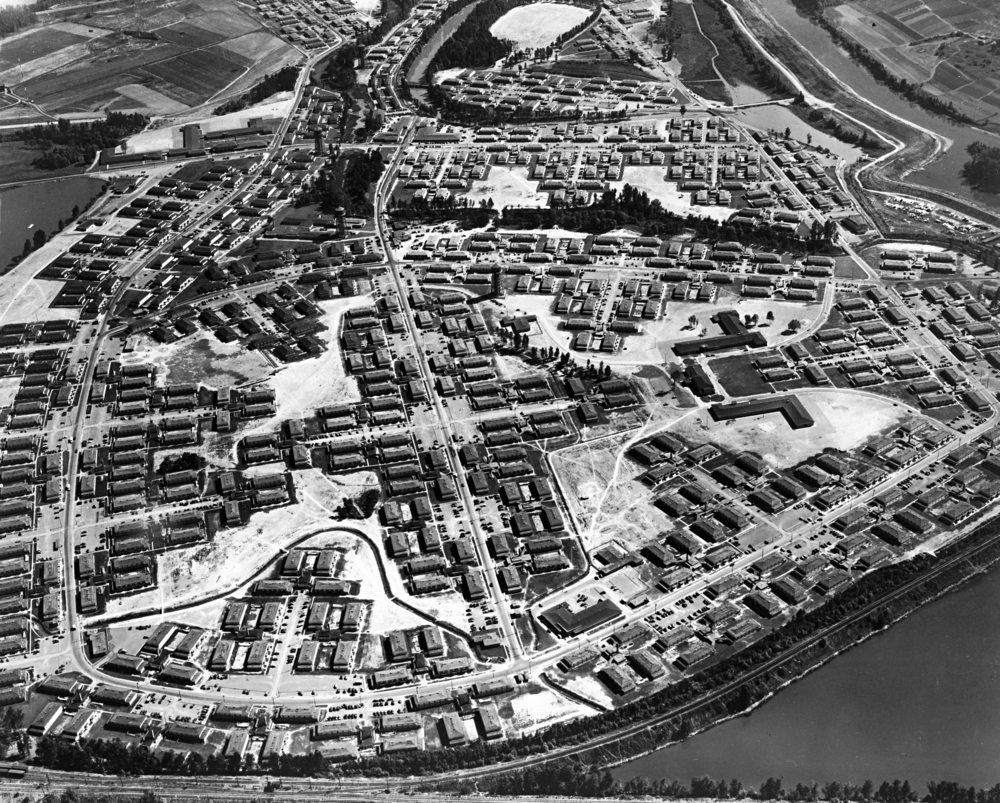In 1937, Dorothea Marie Lensch was named the first Director of Recreation within Portland’s Bureau of Parks and Public Recreation. She revitalized the department, transforming it from an organization focused on playgrounds and sports to one that encouraged activities that focused on the arts, dance, and sports for people of all abilities and backgrounds. She promoted sports activities for girls, encouraged racial integration, and paid special attention to low-income families and to children with mental and physical disabilities. "Our philosophy,” she said in 1972,” was that there be in recreation a blending of physical, cultural and social programs, community centers and playgrounds."
Dorothea Lensch was born in Portland on October 5, 1907. Her parents, Julius and Marie Lensch, were German immigrants, and they encouraged Dorothea and her older brother Jewel (Juel) to attend the local Turnverein clubs, which offered gymnastics, sports, music, and cultural classes and events. Throughout her childhood, she was involved in gymnastics, swimming, and dance and was part of a children’s orchestra that toured the West Coast—activities that helped shape her outlook on physical health and recreation.
After graduating from Franklin High School in 1925, Lensch attended Mills College in Oakland, California. She completed a bachelor’s degree in physical education at the University of Oregon in 1929 and received a master’s degree in health in 1930 from Wellesley College in Massachusetts. In 1966, she completed a PhD in health, physical education, and recreation from the University of Oregon with a dissertation on “The Evolution of Recreation Programs in War Housing Project in Portland, Oregon, between the Years 1940-1960.”
Lensch taught dance in 1932 at Rockford College in Rockford, Illinois, and then at George Washington University in Washington, D.C., in 1936. She headed the Dance Department at both schools. In 1937, Portland Parks and Recreation hired her as its first Director of Recreation. She believed that recreation promoted achievement, individual growth, and community interaction, and her vision included giving Portlanders opportunities to participate in sports, dance, music, arts, theater, and crafts and to be part of such activities as swim pageants, community plays, and bicycle trips. Her goal as director was to provide accessible, comprehensive, and inclusive programming to Portland neighborhoods.
The population of the City of Portland grew by a third between 1940 and 1943 and had 140,000 residents by early 1944. In addition to her park duties, she was named Project Service Director in 1942 for the Portland Housing Authority. Lensch unified the city’s wartime housing and recreation needs under one umbrella and increased opportunities for recreation in Portland neighborhoods and the City of Vanport. Portland had four community recreation centers when Lensch was hired in 1937; by 1971, more than a dozen community centers had been built across the city.
Under Lensch’s leadership, the Recreation Department programs expanded to include arts and crafts lessons, track, boxing, gymnastics, wrestling, badminton, volleyball, basketball, fencing, soccer, baseball, tennis, softball, and table tennis. The Ballet Workshop, the Junior Museum (which became the Children’s Museum in 1949), the Art Center, the Washington Park Music by Moonlight Festival, and the Community Music Center (opened in 1955) were all established under her leadership. She went to West Germany for four months as a Recreational Specialist for the U.S. State Department and traveled to Australia for People to People, which had been established in 1956 “to enhance international understanding and friendship through educational, cultural and humanitarian activities.”
Lensch’s dedication to opening Portland parks and recreational activities to the broader public was sometimes hampered by her personal views on race. In 1963, two Black employees were rehired after Lensch was found to have practiced “gross discrimination” in her employment policy. She resisted calls to recruit young Black workers as volunteers or seasonal employees, and she was called out by Albina community members as being dismissive of input by the Black community on public recreation programs.
Lensch started a Portland Special Olympics and served as director of the Northwest Regional Games in 1969. On July 25, 1977, the Oregon Journal reported that Lensch was the first in the nation to design community recreation programs specifically for children with intellectual disabilities—dances, cooking classes, and Camp Ky-O-Wa at Dodge Park east of Portland near Troutdale.
After her retirement in 1972, Lensch served on the boards of the Portland Opera Association, the Japanese Garden, and the Portland State University Foundation. She was also a member of the Regional Arts and Culture Council and served on the board for the 40-Mile Loop Trail. In 1999, she was inducted into the Oregon Sports Hall of Fame. She recalled that when she went to work for the city, "City Council members had no belief that a woman knew much about people and community recreation. You see, I think they were all still sports oriented. And to me, sports are just as important as the dance, the drama, the junior museum, and all the rest of the things that I started.”
Lensch received the Edith Knight Hill Award, the Oregon Park and Recreation Award, a Distinguished Service Award from the Portland Chamber of Commerce, a Distinguished Fellow Award of the National Park and Recreation Association, the George Russill Community Service Award, and the Aubrey Watzek Award from Lewis & Clark College. In 1993, she received the Young Audiences Spotlight Award for her contributions to the community and the arts.
In 1972, Portland City Councilman Frank Ivancie said that “Dorothea Lensch is one of the few uncommon great leaders in the field of public recreation in the United States today. Her achievements in this field will be a legacy that the city will enjoy and benefit from the years to come.”
Dorothea Lensch died in Portland on July 27, 2000.
-
Dorothea Lensch mountain climbing, 1950.
Courtesy Portland City Archives, A2001-013.142 -
![]()
Dorothea Lensch.
Courtesy Portland City Archives
-
![]()
Dorothea Lensch dancing, 1927.
Courtesy Portland City Archives, A2001-013.131 -
Dorothea Lensch, 1940.
Courtesy Portland City Archives, A2001-030.2671 -
Dorothea Lensch with Mayor Riley (left) at KXL radio studios, 1948.
Courtesy Portland City Archives, A2001-013.117 -
![]()
Dorothea Lensch bowls with Commissioner Ormond Bean (right) and Parks Superintendent Harry Buckley (center), Portland, 1949.
Courtesy Portland City Archives, A2005-005.67.5 -
Dorothea Lensch (left) at Special Olympics with Olympian Pokey Watson, Portland, 1969.
Courtesy Portland City Archives, A2001-013.159 -
![]()
Dorothea Lensch (middle) yearbook photo, Franklin High School, 1925.
Courtesy Franklin High School Library, Portland
Related Entries
-
![Forest Park]()
Forest Park
Forest Park is a unique and impressive recreational and scenic area est…
-
![Housing Authority of Portland]()
Housing Authority of Portland
The Housing Authority of Portland was created in 1941 in response to th…
-
![Macleay Park]()
Macleay Park
Portlanders have long valued Macleay Park, in Portland’s northwest hill…
-
Mount Tabor Park
Southeast Portland's 196-acre Mount Tabor Park sits on an extinct volca…
-
![Olmsted Portland Park Plan]()
Olmsted Portland Park Plan
In the late nineteenth century, Portland's City Park (soon to be named …
-
![Portland]()
Portland
Portland, with a 2020 population of 652,503 within its city limits and …
-
![Portland Commission Government]()
Portland Commission Government
Portland's commission form of municipal government, which the city adop…
-
![Vanport]()
Vanport
In its short history, from 1942 to 1948, Vanport was the nation’s large…
Map This on the Oregon History WayFinder
The Oregon History Wayfinder is an interactive map that identifies significant places, people, and events in Oregon history.
Further Reading
Eggers, Kerry. "Undying Spirit Shines at Hall Enshrinement." Portland Oregonian, August 22, 1999, p.D03
Parks and Recreation (Archival). City of Portland (OR) Archives.
"Annual report 1938 - recreation features of Park Bureau." City of Portland (OR) Archives, A2001-013, 1938.
"Annual Report - Expanded Recreation Program: 1943–1944. City of Portland (OR) Archives, A2001-013, 1944.
"The evolution of recreation programs in war housing projects in Portland, Oregon, between the years 1940 and 1960." City of Portland (OR) Archives, A2001-013.

